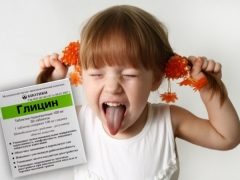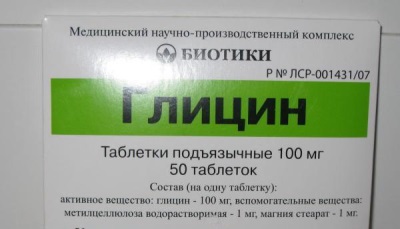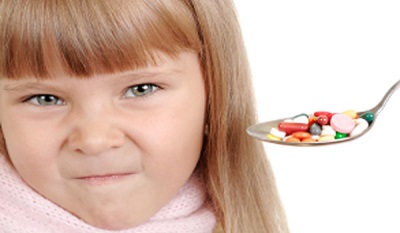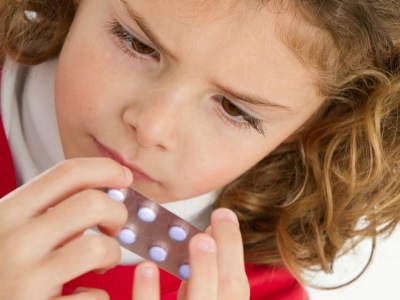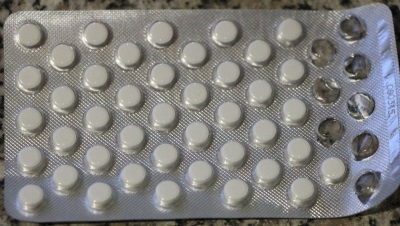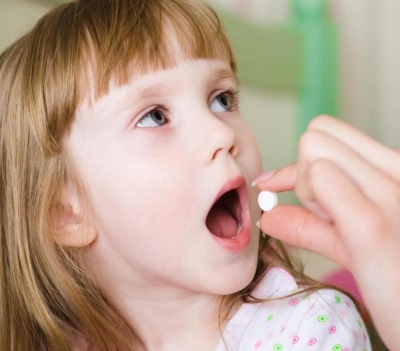Glycine for children: instructions for use
Such a drug as glycine is prescribed in childhood by many doctors. And so that parents should not be afraid of giving this remedy to babies, they should know how this drug works, why it is necessary for a child’s body and what dosages will be safe at different ages.
Nature of glycine
This compound is aminoacetic acid, related to replaceable amino acids (it is synthesized in the human body from other amino acids). The basis of the name of such an aliphatic acid is the word "glycos", which in ancient Greek meant "sweet." Glycine, like other amino acids, is in both plant and animal foods. Its sources are liver and beef, oatmeal, sunflower and pumpkin seeds, nuts and other products.
2 principles of action
If glycine enters the child's body as part of food, it splits in the digestive tract along with other amino acids, and then is transferred to the liver and other organs, taking part in the synthesis of proteins.
Glycine will have a completely different effect, which in the form of a tablet is absorbed in the oral cavity. It enters directly into the bloodstream and is transported to the brain, where it “works” with a mediator. Under its action, the formation of glutamic acid in neurons decreases, which leads to a decrease in the effect of excitation. Instead, neurons begin to produce GABA, which has a retarding effect.
Such an action normalizes metabolic processes, improves the functioning of the nervous system, improves the psycho-emotional state and stimulates intellectual activity. In addition, glycine to the receptors of the brain removes conflict, reduces aggressiveness, improves mood, reduces the toxic effects of drugs that inhibit the central nervous system.
Indications
Glycine is used in childhood as:
- Natural soothing medicine with a mild action.
- Means to normalize sleep.
- Drug against muscular dystrophy.
- Stimulator of mental activity.
- Protective agent for emotional stress, stress and stroke.
- Nootropic drug in the treatment of nervous diseases.
Reasons to assign glycine to the child are:
- Brain damage.
- Memory impairment
- Problems concentrating.
- Stress.
- Psycho-emotional overload.
- Mental retardation.
- Sleep disturbance
Contraindications
The main contraindication in which glycine is not prescribed is individual intolerance to such an amino acid or excipients in tablets.
Side effects
A rare adverse reaction to glycine is allergy, which is manifested urticaria or a skin rash. If you use too high a dose, the drug can cause nausea, dizziness, and a decrease in blood pressure.
The combination of glycine with other medicines
In glycine, the property of reducing the toxic effect of drugs on the brain is noted, therefore, it is often prescribed together with the drugs of the group. antidepressants and neuroleptics.
If you give a child glycine at the same time as medicines that have hypnotic, tranquilizing and sedative effect, the effect of inhibition of the central nervous system will be summed up.
At what age can you give children?
Glycine can be prescribed from the first year of life, but the use in the age of 3 years should be monitored by a doctor.
Dosage and instructions for use
Tablets, in which glycine is the main active ingredient, need to be absorbed under the tongue or behind the cheek (between the gums and the upper lip). The reason for the appointment affects the duration of use and dosage in the first place, therefore the doctor must prescribe such a drug.
Babies
Children younger than a year are prescribed glycine only for serious medical reasons. In this case, the dose of the drug, the frequency of administration and the duration of therapy should be established by the attending physician.
If he has prescribed glycine to the baby, the tablet is crushed into powder, which is applied to the nipple or immediately placed in the baby’s mouth. The duration of the appointment at the age of one year usually does not exceed 2 weeks. An alternative to the use of glycine for children younger than one year is to use the drug. nursing mom.
Children 1-2 years old
At this age, glycine is prescribed in half a tablet (50 mg) three times a day. After two weeks of this regimen, the drug is given another week once a day, 50 mg.
Children 3-4 years
At this age, the dosage of glycine is 100 mg per dose (1 tablet). The drug is prescribed for 1-4 weeks with a frequency of reception 2-3 times a day.
Children over 5 years old
A single dose of glycine for children of this age is 1 tablet, which must be absorbed in the mouth without grinding. It is given to a child 2 or 3 times a day, the course of treatment usually ranges from 7 to 14 days, but can increase up to 1 month. If the child has trouble sleeping, the drug is given overnight 20 minutes before the baby goes to bed.
Opinion Komarovsky
A popular pediatrician considers the nootropic action of glycine unproven and claims that the drug is useful mainly to doctors and parents. First he helps to ease the responsibility, and the second brings peace of mind that at least something is being done. Such medicine does not harm small patients, but, according to Komarovsky, it does not help either. The famous doctor believes that he is discharged mainly "just in case."
Parent reviews
Most of the parents who gave glycine to their children, noted the harmlessness and effectiveness of its action. Many say that after the course of such a drug, the child became less restless, his mental activity became more active, in particular, memory and attention. Also often mention the normalization, after taking glycine, sleep and muscle tone. Much less often you can hear complaints about the uselessness and allergic reactions.
